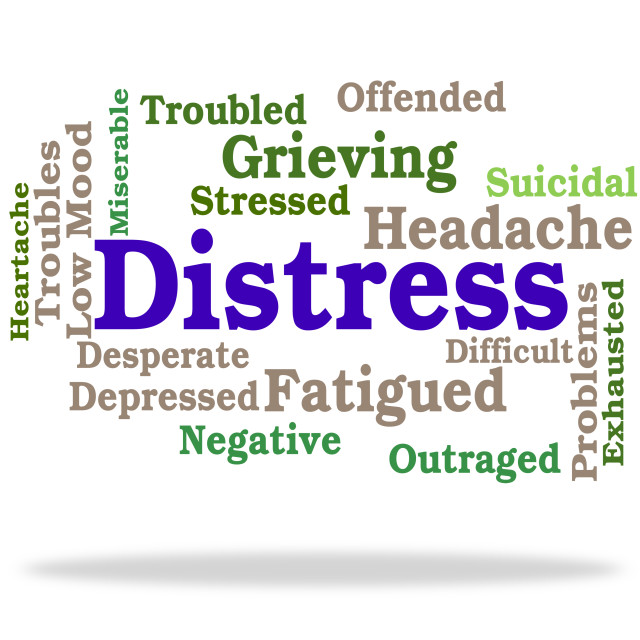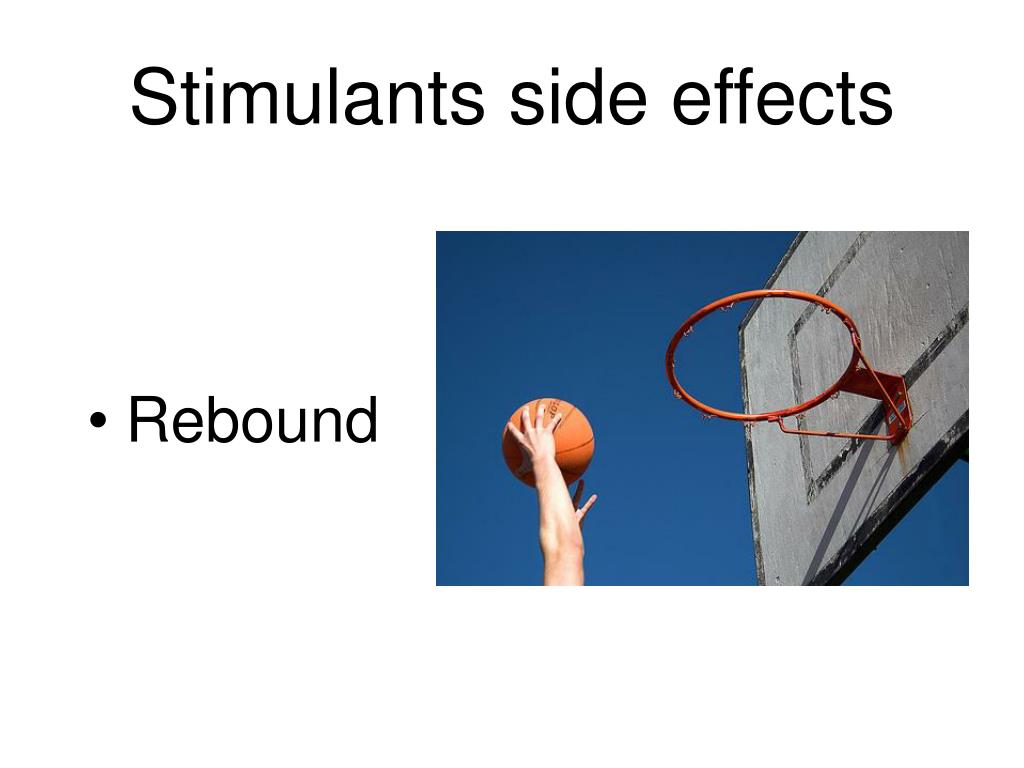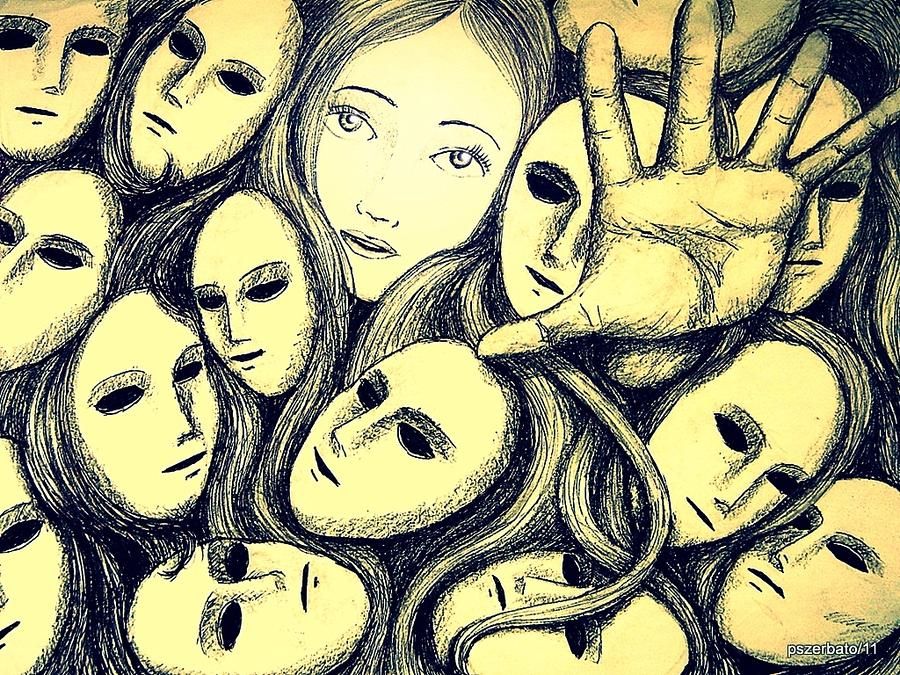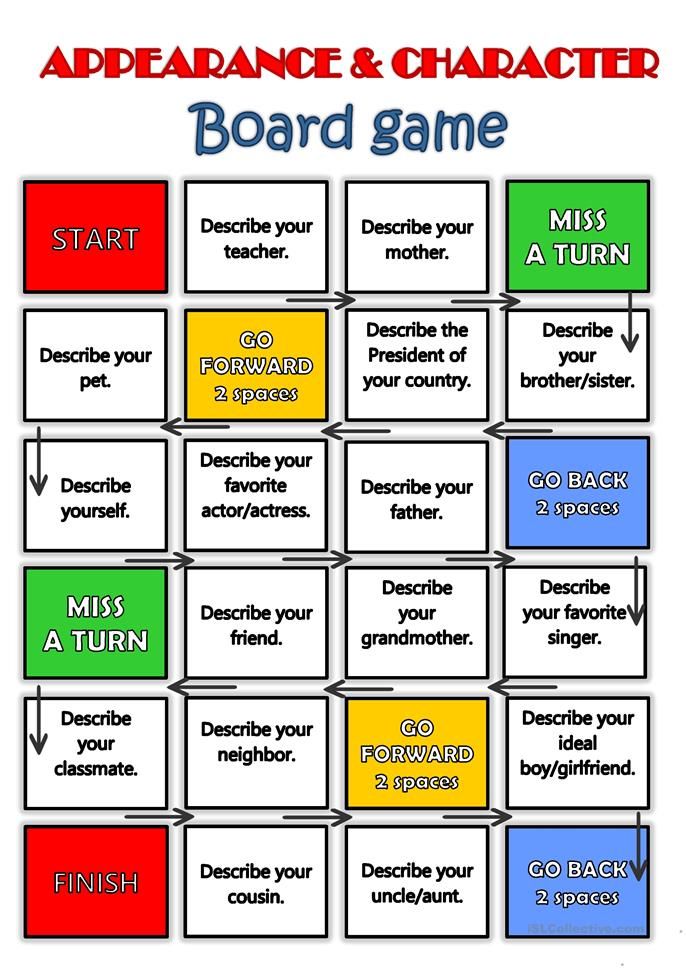Lying in psychology
The truth about lies
Practicing psychologists typically believe that their offices are safe spaces, places where patients can feel comfortable sharing their deepest, most intimate thoughts and feelings without judgment, and work toward resolution and healing. Yet a surprisingly high percentage of patients—if not nearly all—admit that they have either lied to or not been completely truthful with their therapists.
"It’s not just common, it’s ubiquitous," notes Barry Farber, PhD, a professor in the clinical psychology program at Columbia University’s Teachers College and the editor of the Journal of Clinical Psychology: In Session. "Lying is inevitable in psychotherapy," he says.
Everyone shades the truth sometimes, whether it’s telling a friend that color really does look good on her or making up an excuse as to why you were late for dinner at your in-laws. "We are always deciding what we are going to say and what we may conceal from others," says Farber.
And it seems time spent in a therapist’s office isn’t an exception.
Farber isn’t just speculating—he’s studied this topic for decades. In a survey of 547 psychotherapy clients, 93 percent said they consciously lied at least once to their therapist (Counselling Psychology Quarterly, Vol. 29, No. 1, 2016). In a second survey, 84 percent said this dishonesty continued on a regular basis.
And while therapists might suspect that they can tell when patients are being less than truthful, research shows this is not the case. In Farber’s study, 73 percent of respondents reported that "the truth about their lies had never been acknowledged in therapy." Only 3.5 percent of patients owned up to the lies voluntarily, and in another 9 percent of cases the therapists uncovered the untruth, notes Farber, who reports on this and related research in a new book, "Secrets and Lies in Psychotherapy," with co-authors Matt Blanchard, PhD, and Melanie Love, MS. "It seems therapists aren’t particularly good at detecting lies," Farber says.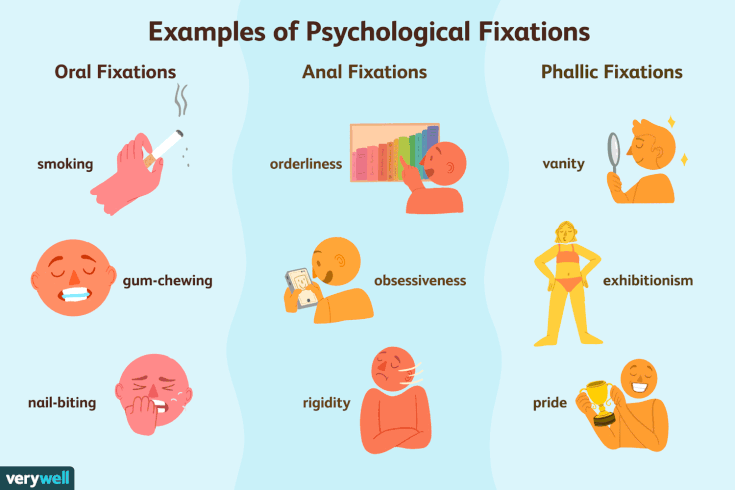
What's not being said
Patients tend to lie or not be entirely truthful to their therapists on a wide range of topics, but the researchers were surprised at some of the most common areas of misinformation. "The most commonly lied-about topics were often very subtle," observes co-author Blanchard, a clinical psychologist at New York University. More than half of the respondents (54 percent) in the first study reported minimizing their psychological distress when in therapy, pretending to feel happier and healthier than they really were. This minimizing was nearly twice as common as all other forms of dishonesty, the authors report. The second most commonly reported lie—similar to the first, though somewhat more focused—was minimizing the severity of their symptoms, reported by 39 percent of the sample.
The third most commonly reported lie was concealing or hiding thoughts about suicide, reported by 31 percent of the respondents, and the fourth was minimizing or hiding insecurities and self-doubts.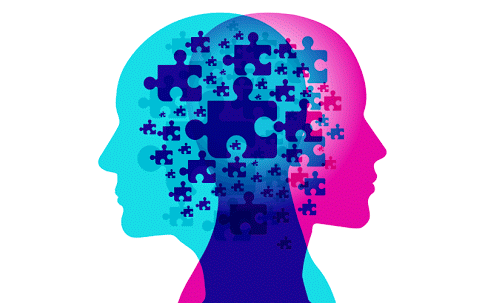 (See a list of more common lies on the next page.) In all, six of the 20 most common lies were about the clients’ experience of therapy itself, such as pretending to find therapy effective.
(See a list of more common lies on the next page.) In all, six of the 20 most common lies were about the clients’ experience of therapy itself, such as pretending to find therapy effective.
Why lie?
Clients devote a good deal of their resources (both time and money) to therapy, so what’s the impetus for hiding the truth? Researchers say it all depends on the lie itself. For the high percentage of clients who are either minimizing their distress or saying that therapy is going better than they really think it is, it’s likely a combination of things. "This ‘distress minimization,’ or acting happier or healthier than they may really feel, may come from not wanting to upset the therapist or be seen as a complainer," says Blanchard. "But it may also be a way to protect themselves from a painful realization of how bad things may actually be. There’s this idea that ‘talking about how I’m doing makes me feel more depressed,’ or that they can’t admit a painful situation to themselves, let alone say it out loud. "
"
For patients who are hiding thoughts of suicide or drug use, the primary reason is likely a fear of the consequences if the truth does come out. "About 70 percent of people who had concealed thoughts of suicide worried about being carted off to the hospital—yet most of them didn’t appear to be suicidal to the point where most clinicians would be forced to take that action," says Blanchard. "Many clients simply didn’t understand the triggers for hospitalization."
The same may be true for drug use, with patients concerned about being coerced into rehab. "Telling you I smoke weed isn’t that big of a deal, but I’m not sure I might want to tell you about the cocaine or OxyContin habit I’ve developed," says Farber.
Then, too, there is the idea of shame—especially as it relates to sex. "Many clients are motivated by shame and embarrassment to lie or hide the truth about this topic," says co-author Melanie Love. "There was also concern that the therapist might judge them or simply not understand where they were coming from. "
"
Some patients were also concerned that if they admitted certain thoughts or feelings to their therapists, it would have an outsize effect on the rest of their therapy. "Some clients think that if I let my therapist know I have an occasional thought of suicide, it will be all he wants to talk about and we will never get to anything else," says Farber.
It’s also important for therapists to recognize the difference between a secret and a lie. The two are related but distinct, says Ellen Marks, PhD, an associate psychologist with University Health Services at the University of Wisconsin–Madison, who has conducted research in this area. "While they both may include a level of deception, a secret is an act of omission, while a lie is an act of deception," she notes.
This can be an important distinction, she adds, especially when it comes to clients revealing secrets during therapy or choosing to keep them to themselves. In Marks’s research, 41 percent of clients concealed at least one secret, while 85 percent disclosed at least one secret (Journal of Counseling Psychology, Vol.![]() 66, No. 1, 2019).
66, No. 1, 2019).
"We have to recognize that keeping secrets may not be a bad thing all of the time," she says. "We need to let go of our expectations that clients share everything with us." Instead, she says, by focusing on what patients do choose to share and establishing the therapist as a trustworthy confidante, "if and when the time is right, the space will be there for the client to share the secret."
Moving forward
So, what can psychologists do about lies in therapy? "In some cases, the best action is to do nothing," says Farber. For example, he says, a therapist might want to keep silent "if the client has explicitly told you that he or she needs to go at his or her own pace on this particular topic and doesn’t want to be rushed into discussing something difficult before he or she is ready, or if you have the sense that pursuing the truth—even gently—means the client may leave therapy altogether." The therapist may also find that a minor lie, such as why the client was late for a session, is better dealt with only if it occurs again or is part of a pattern that needs to be addressed.
But there are steps therapists can take to keep their sessions on track and their clients as honest as possible.
Be up front about the disclosure process. "Clients mentioned that they want therapists to be more active in explaining the process of disclosure," says Love, a predoctoral psychology intern at Temple University. "They would like a therapist to outline what might happen if they were to talk about this topic." Helping to explain why disclosure is valuable for treatment and what the client may gain from it—as well as exploring the idea that clients may experience certain emotions that motivate avoidance—can all be key.
This communication can and should begin early, even in the intake process, says Love. "Taking the temperature of what clients may be ready for and planting the seeds of what types of topics you may be covering is important," she notes.
For patients who may worry about discussing any thoughts of suicide, explaining the limits of confidentiality as clearly and openly as possible can be especially helpful. Knowing what triggers the process of hospitalization may help those who worry about this step if they have suicidal thoughts. Help keep patients safe and comfortable by educating them on what may or may not require a higher level of care.
Knowing what triggers the process of hospitalization may help those who worry about this step if they have suicidal thoughts. Help keep patients safe and comfortable by educating them on what may or may not require a higher level of care.
Ask direct questions. Clients are often willing to discuss almost anything but may be hesitant to take the first step, especially around a topic they find shameful. Therapists who don’t introduce challenging topics can (inadvertently) communicate to the client that these areas are off-limits, according to Farber and his co-authors. Instead, they write, therapists should "model for clients that all topics are discussable in therapy."
The research bears this out. "In our second survey, 46 percent of clients reported they would have been more honest if the therapist had asked direct questions," says Blanchard. "As therapists, we don’t want to be seen as pushy because it’s not our job to be interrogator[s], but there are times when the therapist may need to lead a client toward disclosure with direct questions. "
"
In some cases, questions that elicit a simple "yes" or "no" response may be the easiest way to move things forward. "We may be trained to ask open-ended questions, but this isn’t always the best approach," adds Blanchard.
Providing positive feedback when clients are more open is also important, especially when it comes to reducing some of the shame that may be associated with disclosures on topics that may be perceived as taboo. Ultimately, the authors say, this will strengthen the relationship between patient and therapist.
Be mindful about how you come off. Authenticity is important, especially in therapy, so it’s vital to come across to patients as both understanding and genuine. "For the most part, therapists need to balance curiosity with acceptance and understanding of clients’ limits for disclosure at any one time," the authors note. Using language that feels comfortable and authentic can help, as can being conscious of your own tone. A therapist who comes across as too eager or who overreacts emotionally or, conversely, who acts completely unaffected, like a topic is ho-hum—can lead a patient to shut down.
Some of the female respondents to the survey reported they were worried their female therapists would be especially judgmental of what they might reveal. "One of the most desired interventions was to normalize that it’s OK to talk about certain subjects in therapy and provide a rationale of why it may be helpful," explains Love.
Circle back to certain topics. Patients tend to drop what Farber calls "a doorknob comment," an off-handed comment at the end of a session that indicates there’s a deeper topic involved. "A good therapist is sensitive to this type of comment and will make a note that it may be worth revisiting at a future time," says Farber.
The need to revisit tough topics can also change over time, since some patients will want to wait until they are further into therapy before they feel comfortable discussing such topics; others will give some small indication that they might be hiding something and wait to see how the therapist reacts. It can help to start with a broader topic and narrow it down based on patient cues—such as asking more about relationships in general before getting into details about sexual issues, or broaching symptoms of depression before talking specifically about suicidal thoughts, says Farber.
A therapist may also need to be attuned to body language or other cues that the patient may not be being entirely truthful on a topic. "Take note if you notice that a client feels uncomfortable on a certain topic, and then wait for the right time to talk about it," advises Blanchard. "A lot happens around a person’s eyes, so I will often watch someone’s eyes for a reaction and notice if something is registering that he or she may not be willing to share."
Acknowledge difficulties. Therapy isn’t easy, and therapists sometimes need to take a moment and address that fact, both to themselves and to their patients. "It is sometimes difficult to get to the difficult part," says Farber. Often, it’s important to deal with the resistance to the topic before the topic itself. "It can be helpful to say, ‘We should talk about this more, it feels important,’ or even, ‘I understand it can be difficult to talk about this—let’s not talk about this issue, but why it’s hard to talk about it. ’"
’"
For patients who may be worried that their responses may elicit unwanted action by the therapist (such as hospitalization for suicidal thoughts or recommendations for rehab for an alcohol or drug issue), it’s especially important to address these concerns up front. "We need to be sensitive about how to address these issues," says Farber.
The bottom line
It seems inevitable that patients will lie to their therapists, but there is a bright side, says Blanchard. "With time and patience, we can create conditions where clients can be comfortable disclosing their feelings."
And sometimes, perhaps, not being truthful may play its own part in the therapy process.
"Although we most often consider concealment and lies as inevitably problematic, in minimal doses these behaviors are not only inevitable, but can help individuals create more effective narratives about their lives," says Farber. "That, in turn improves their sense of self and their ability to engage with others. "
"
In fact, most therapists should be prepared to acknowledge that they may never really know what’s happening inside a patient’s mind. Even when it may be obvious that a client is hiding something, ultimately it is his or her own prerogative whether or not to share. "It’s not in our interest to be punitive—clients have the right to lie all they want to their therapists," says Blanchard. "Honest disclosure is at the heart of all psychotherapy, but if someone feels like they need to lie, that may also be important."
How bad is lying | The psychology behind lies
We all know that lying isn’t the best thing to do. It’s a universally acknowledged truth. So why do we do it in the first place? We spoke to our head psychotherapist, Natalija and these are the meaningful truths she shared with us…
Why do we lie?
Lying allows a person to establish perceived control over a situation by manipulating it. It’s a defence mechanism that (seemingly) prevents them from being vulnerable, that is, to not open up and reveal their true self to another person. To do so comes with the chance of the other person rejecting, criticising or feeling disappointed with you. And for a deeply insecure person, this can be unbearable. When someone is lying and is rejected there’s a sense of there being a reason for the rejection. By comparison, when a person opens up and is rejected, this feels to them as though they’re fundamentally disliked, which negatively affects their self-esteem.
To do so comes with the chance of the other person rejecting, criticising or feeling disappointed with you. And for a deeply insecure person, this can be unbearable. When someone is lying and is rejected there’s a sense of there being a reason for the rejection. By comparison, when a person opens up and is rejected, this feels to them as though they’re fundamentally disliked, which negatively affects their self-esteem.
Sometimes people reenact early dynamics by acting in a certain way. Lying and making others check on, or distrust them, might be an unconscious behaviour that gets repeated as a result of past experiences. In other words, the person hasn’t learnt how to relate to people differently. For example, they may have faced difficulties in their upbringing such as violent parents so they had to create a world of their own (often lying to themselves or developing a habit of lying to others).
In a sense as an extension of the defence mechanism mentioned earlier. People will also occasionally lie to avoid difficult situations and ‘bury’ the feelings that come with them such as guilt, depression, sadness and anxiety. A weaker ego (low self-confidence) makes it more difficult to bear these feelings. Lying enables people to avoid situations in which they would have to confront these overwhelming feelings, in the short-term. It’s important to note that suppressing our thoughts and feelings into our subconscious is not a solution and they will affect you affect you in the long term – this is unavoidable and is the basis of psychoanalytic therapy.
A weaker ego (low self-confidence) makes it more difficult to bear these feelings. Lying enables people to avoid situations in which they would have to confront these overwhelming feelings, in the short-term. It’s important to note that suppressing our thoughts and feelings into our subconscious is not a solution and they will affect you affect you in the long term – this is unavoidable and is the basis of psychoanalytic therapy.
Fear of hurting or letting a person down is another common reason why people lie. Some people find it extremely difficult to bear the feelings that come with disappointing another person. We can say that this is a selfish reason because it centres around protecting oneself from taking responsibility for the disappointment. The victim usually wants to know the truth whatever it is.
When does lying become unhealthy?
In terms of lying becoming unhealthy, when the other person senses that you’re lying or have been repeatedly lying – no matter how significant the lie or the reasoning behind it – this affects their ability to trust you. Similarly, if they see through your lies, in terms of insecurity or a lack of confidence, this may affect their overall judgement of and respect for you. Generally speaking, people are more accepting of others’ imperfections when that person is open and transparent about them. In other words, they own their imperfections. Often this is in fact very endearing to us as humans. It’s also liberating and can be a release for us as individuals when we come clean about our weaknesses and mistakes.
When is lying acceptable, when is it not?
Of course lying to plan a surprise for someone is acknowledged as acceptable. Perhaps lying might also be acceptable when it means saving someone’s life. But this is more to do with morals and ethics than psychotherapy. For mental wellbeing, it’s best to strive not to tell lies. In a relationship being honest means really getting to know each other and obtaining honest feedback, which helps to improve ourselves and our relationships. Often when we are honest, the other person can help us to overcome our insecurities, as well as coming to understand us better. If we hide things from them they cannot do this.
Perhaps it’s also important to talk about how we can handle the truth better? Work wise, being honest helps to highlight organisational problems, learn and avoid mistakes. We can do this in trusting relationships with friends, family and colleagues.
Are white lies good or bad?
It’s not ok to tell lies even if they’re “little” or “white” lies. It’s still a lie and misleads a person. Lying – however big or small – creates a gap between you and the other person: you aren’t showing what you really think or what you really did. In this way, you’re missing out on an opportunity to get to know each other on a deeper, more intimate level.
What personality type commonly falls victim to being lied to?
Liars do not target anyone in particular, it’s simply the way they relate to people. (Narcissists and psychopaths, on the other hand, do target people who can be useful to them.) That said, if people are consistently lied to, it may suggest that either, they’re not very in touch with themselves or really want to believe the lie instead of facing the truth. That’s why they don’t (or can’t) pick up on clues or signals that a liar always subconsciously shows. In my experience, it nearly always takes two people, one is lying and another allowing themselves to be lied to.
When might you be dealing with a personality disorder or other mental illness?
Lying doesn’t necessarily mean that they have a personality disorder. Nearly all people lie now and then, but when a person is lying on a regular basis, (unnecessarily or in order to further their own interests at someone else’s expense) the question may be raised about their psychological state. Being a compulsive liar can indicate issues concerning an individual’s self esteem, their understanding of what distinguishes right from wrong, or a lack of a strong sense of self.
Psychology of lies - Human psychology
Lies are only the insufficiency of truth.
Lev Platonovich Karsavin
Lies are such a frequent occurrence in our lives that it is easier to identify those cases when people, both intentionally and accidentally, so to speak, by inertia do not lie to each other than when they lie. At the same time, most people have a negative attitude towards lies, as, indeed, towards everything else, which gives one person an advantage over another. But the lie was, is and most likely will always be an integral part of our life, no matter how we treat it, because it is part of our nature. And today, in the times of universal informatization, there is especially a lot of it, because in the civilized world, lies and deceit are an alternative to violence, which used to be much more, and it largely determined relations between people. Today, people prefer to use each other primarily through lies and deceit. Therefore, every person who wants to understand life and people must definitely know everything about lies. The psychology of lies will teach you to recognize the lies of other people and use them correctly yourself. In this article I will try to reveal this topic for you as fully and accurately as possible.
We live in a world of lies, in which there are evil and harmful lies, but there are good and good ones, useful for many people. In all this lies you need to be able to navigate. It is impossible to reject lies or use them everywhere, and even in the same form - this can lead to big problems. You need to be able to handle lies competently, and the psychology of lies - revealing and studying this topic, helps to do this. The main thing is not to evaluate the lie, but to understand it. I hope that most of you will treat this article with an open mind, so as not to evaluate it in terms of the beliefs you already have, rejecting one and accepting the other, but to supplement your knowledge with new knowledge and draw deeper conclusions based on them. So, for starters, let's quickly find out what a lie is.
What is a lie
It is believed that a lie is a deliberate distortion of the so-called truth, or, more simply, a lie. But if you think about it, then such a concept as truth is too difficult to understand and define in order to talk about its distortion. Firstly, not everyone knows the truth, and secondly, everyone sees it in their own way, and everyone has their own truth. Therefore, people often do not deliberately distort the truth so much as see it as they want to see it and understand it as they are able to understand it, and reflect it accordingly in their words and actions. That is, people lie - they distort information, sometimes without even realizing it.
Also, unlike the same deception, a lie can be good, when, for example, one person does not want to offend another person, so he tells him not what he sees, but what he wants to hear. Deception is always used for self-interest, but a lie can be for salvation, for good. Therefore, from my point of view, a lie is not only a method of communication necessary in our life and an effective means of influencing people, but also an inevitable and quite natural form of communication. To put it even more simply, a lie is a tool available to everyone, but not everyone knows how to use it competently. But nevertheless, we all need a lie, because so far we cannot live without it. So the ability to lie is a life skill. Below I will explain to you why.
Why people lie
People lie, firstly, constantly, secondly, they do it for profit, out of fear and spontaneously, unintentionally, and thirdly, people often lie extremely ineptly and thoughtlessly. With profit, I think, everything is clear - if you skillfully mislead other people, then you can get from them some actions you need, some concessions, some decisions that are beneficial to you. We can see such lies everywhere - they lie to us through TV, newspapers, the Internet, and other sources of information. In particular, advertising constantly does this by deliberately misleading us with incomplete or completely unreliable information in order to get certain decisions and actions from us. Politicians also constantly lie to us for personal gain, and they lie much more often than they tell the truth, it was not for nothing that Plato wrote that a politician and a liar are synonymous. Well, we ourselves often lie while communicating with each other, both in small things and in a big way, in order to extract some benefit with the help of lies or save ourselves from something. If you think that this does not apply to you, that you are an absolutely honest person who never or almost never lies to anyone, then you can either not take my words personally, or better analyze your behavior and your words lately, to try to find lies in them. Usually, when people begin to carefully examine their behavior and their words, they discover, sometimes with surprise, that they are not as honest as they always thought. But it’s not worth being ashamed of this, since a lie is a natural and necessary part of our life, we cannot and should not live without a lie, because in this world this is impossible to do, at least not yet.
As for lies caused by fear, such a lie is a defensive reaction of the body, it is a defensive reaction of our mind, which is designed to protect us from some kind of threat by distorting information. Children, for example, often lie in order to protect themselves from adults, since they are physically weaker and lying is their only salvation, sometimes from the same violence. And since many people constantly encounter violence expressed in one form or another in their lives, it is very difficult, if not impossible, to protect themselves from it without lying. For example, in the same court, it is sometimes simply impossible to be honest, even if it is beneficial for you, since the truth, no matter how truthful it is, the court, the judge, the jury may not be interested at all, so you have to play cat and mouse with justice, with the help of good lawyers, so as not to become his victim. We cannot afford such a luxury as the truth, we cannot always and with everyone be crystal honest, because people will not only begin to use our honesty against us, starting to use us, but they will not forgive us for some truth. In addition, some forms of truth are, let's say, a very valuable resource that must be protected, if not from everyone, then from some people for sure. And for this you have to lie to people. After all, say, if you honestly tell other people about your weaknesses or about your problems, then many of them can use this information against you.
For example, you can’t talk about some of your family problems to everyone in a row, because people can use your problems to their advantage and to your detriment. For example, a woman in need of a man can take her husband away from her friend if she finds out about her family problems and uses them in the right way for her own good. Therefore, you don’t need to tell anyone about some of your problems, except for specialists who know how to solve them, and you can and should lie to overly curious people who are interested in someone else’s life in order to prevent them from learning more than necessary about you. And people themselves sometimes do not want to be told the truth, for example, about themselves. Fear of the truth, no matter how you approach it, is often well founded. Therefore, when people see that they are in danger, they lie as best they can. And other people, on the contrary, reject the truth and demand a lie.
Well, as for the lies that break out of us accidentally, unintentionally, automatically, this is perhaps the most common form of lies in our lives. You see, friends, we often tell each other not about what we really have, but about what we want it to be. We often lie not for profit or fear, but to maintain the reality, both in our own mind and in the minds of other people, that we want to see in our lives. For example, a person can be asked how he is doing, and he will answer that it is normal, good, excellent, when in reality this is not so. In fact, he may have serious problems in life. But the point is not that he does not want to share his problems with you because of fear and distrust of you, but that he does not want to think about them, does not want to notice them, does not want to discuss them - he avoids them. A person often lies not so much to others as to himself. We need lies so much, we need illusions so much, that we often lie to ourselves if other people don't.
At the same time, I would not say that from this point of view, the psychology of lies is the psychology of a weak person running away from reality. After all, often our lies turn into truth when, avoiding negative reality, we create for ourselves another reality that is more suitable for us, for example, running away from our problems or thinking about ourselves better than we really are. And in the end, we can really come to a new, more acceptable reality for us. Truth, let's say, is a very difficult thing, it can be true until a certain point, until we learn more or do something that destroys one truth and creates another, new one. For example, if a person has failed by making a series of serious mistakes, then it is quite possible to call him a failure and this statement will be true. But if the same person works on his mistakes and draws the right conclusions from his failure, using it as a lesson, and not as an excuse for his inability to achieve something, then this failure will become for him the road to success, and then already call this person's tongue will not rise as a loser. Therefore, the truth will undergo changes and from a loser a person will turn into a winner - this will be a new truth.
But again, it will not be final, because in the future it may turn out that the success achieved by a person in one or another business will be the result of a serious failure in another business, which means that it will not be entirely correct to consider this person a winner. And so on - as events develop, our attitude towards them can change, our perception of them can change, and therefore our understanding of the truth can change. Therefore, making time cuts from our lives and studying them, we can state truths of different meanings, which at one glance at them will be true for us, and at another lie.
All this tells us that we can consider even the same information both true and false, depending on our interpretation of it and the conclusions that we draw from it. We can see a thief in a person if he took someone else's good, and we can see in him a noble knight, a kind of Robin Hood, if he took good from someone who himself appropriated it in a dishonest way, taking this good from other people. The phenomenon seems to be the same, but the truth or the truth, as you like, is different. So tell me later that the truth is always one, as well as the truth. Truth and truth, friends, are the products of our thoughts, therefore, the truth of one person does not always coincide with the truth of another person.
How to recognize a lie
To recognize any lie, you need to be a skilled liar yourself, understanding how far people can go, consciously or unconsciously distorting information. And for this, you need to know a lot and understand a lot. Indeed, in order to be guaranteed to recognize a lie, it is necessary to know the truth, this, you see, is logical. For example, if a doctor tells you that a certain medicine will help you get rid of your health problems, then how do you know if he is telling you the truth or not? Even if you notice his nervousness and a host of other signs indicating that the person is lying, even if his words are not entirely logical, this does not mean that the doctor is deceiving you, because it is quite possible that he is telling you the truth, but not all. Perhaps there is a cheaper, but no less effective analogue of the medicine he prescribes, and at the same time this analogue is much more reliable, because it has been time-tested, but due to financial interest, the doctor does not tell you about it. It turns out that he is telling you the truth and at the same time lying, or, to put it more correctly, he is not telling you the whole truth. Therefore, he may not be logical, he may be nervous, sweat, in general, behave like a real liar, but at the same time tell you half-truths that you cannot interpret as a lie without knowing the whole truth. But if you know that there is another medicine that is more suitable for you, both in terms of price and quality, and you also understand that the doctor can prescribe you those medicines for which the manufacturers of these medicines pay him extra, then you accurately recognize his lie, or rather, that part of the information he provides that can be called a lie. Therefore, knowledge and logic are your weapons against lies.
It is also worth saying that in our life there are so many lies, so much information that does not correspond to reality, that it is simply meaningless to talk about it, about lies, as something bad. Sometimes it is more difficult to recognize the truth than a lie, since in our time there are many lies and little truth everywhere. This becomes clear with a careful analysis of almost any information intended for a wide audience. It is believed that a lie must be hidden among the truth in order for it to be perceived by people, that is, it is necessary to make a kind of sandwich, where the thick upper layer is the truth, the lower thin layer is also the truth, and a thin piece of lies is hidden in the middle. But I think this is an outdated approach to planting lies in people's minds. In our time, the truth is already that very thin piece that is clamped by two thick pieces of lies, which are the more effective the more difficult it is to check. Nowadays, people are too busy with work and information to check this information for accuracy. Today, even the most incredible lies are passing, in which people believe as readily as they did thousands of years ago, being absolutely illiterate. Only today the problem of people who are fed with lies is not illiteracy, but the lack of time to verify all the information that comes to them, or even just think about it in order to recognize it as an obvious lie.
Therefore, the art of deceit is being improved and the same politicians no longer hesitate to invent frank fairy tales, consisting of ninety or more percent of lies, in order to influence people in the right way. And if we talk about advertising, then personally it is very difficult for me to find such an advertisement that would not lie to people at all. So there are many, many lies in our lives, and the truth is becoming less and less. Even in science, where serving the truth is one of the main requirements for a scientist who is obliged to observe scientific ethics, is obliged to protect lies, there are more and more, both conscious and unconscious lies, which, worst of all, go unpunished. Today we live in an ocean of lies, in which there are islands of truth, islands of truth, and they are our salvation.
How to lie correctly
To lie correctly, one must lie beautifully and smoothly. There is an opinion, and I absolutely agree with it, that most people themselves want to be deceived. Many people don't need the truth. Rather, they need their own truth, they are interested in the truth that is convenient for them. Therefore, in order to successfully lie to such people, you just need to tell them what they want to hear from you, and in the context of this, convey to them some of your thoughts that you want people to believe. Beauty and consistency are very important here, as they allow people, both through the emotional and through the conscious sphere, to qualitatively assimilate information. The main thing is that people want to believe in what they are pleased to see and hear, which means they are ready to accept lies. People believe that someone else, but not themselves, can make their life the way they want it to be. People believed in this, believe and will believe, since most of them are not so independent as to take care of themselves. The people are a child who wants to be taken care of. Such a child lives in each of us, so people want to believe what they like and willingly accept the lies that correspond to their dreams and desires.
To accomplish the above task, that is, to create a beautiful and coherent lie, you need to learn how to invent beautiful and believable fairy tales that not only other people, but you yourself will be ready to believe. If you want to deceive others, first deceive yourself, and when you yourself believe in your fairy tale, most other people will also believe in it. But remember, in order for people to believe in your fairy tale, it should be a fairy tale not so much about you as about them. You can also lie about yourself, sometimes this allows you to achieve a lot in life, because people are more willing to communicate and cooperate with those who, in their view, are an outstanding and very interesting person. But still, people are much more pleasant to believe in something that is directly related to themselves, to their lives, to their dreams, desires, problems, and in what can make their life better. Therefore, invent such fairy tales that will draw in the minds of people an image of a beautiful future in which they would like to be, according to their desires and dreams. Such a lie for some people is like a balm for the soul.
Well, to create a beautiful and pleasant lie in the form of a fairy tale, as well as to recognize it, one needs knowledge, as well as well-developed thinking, the ability to speak beautifully and / or write beautifully, the ability to talk about something beautifully and interestingly, and it is imperative to tell it smoothly, so that there is logic in the presented lie, so that everything in it is clearly connected with each other, and so that all lies are bright and colorful, such that even the best truth cannot be. Therefore, well-educated people are very good at lying, and less educated people are not able to recognize these lies, since they are simply not able to imagine themselves in the place of a liar in order to understand how large-scale, deep and in some cases cynical a lie can be. Moreover, the less educated a person is, the more he needs what is called a complete lie, when everything is chewed and explained to him in detail, and he does not need to think about anything, you just need to believe the liar. It is more expedient to push people to the right thoughts, and not to inspire them with them. It is easier to deceive such people with such information that you need to think about, break your head in order to find some answers yourself and come to certain conclusions. But in any case, having more extensive knowledge, it is much easier to protect yourself from lies and use it yourself to solve your problems and tasks. For smart, educated people, the lie turns out to be collapsible, systemic, beautiful, logical, understandable, and effective. So the more a person knows and the better he thinks, the better he lies.
Attitude towards lies
In my opinion, our society has formed a too generalized and therefore unjustifiably negative attitude towards lies. In general, most people consider lying to be evil. We are taught this from childhood, instilling in us that it is not good to deceive, that we must always tell the truth. However, not all lies are evil, and even more so, always telling the truth is not necessary, as it will make you vulnerable to other people. But even the lie that harms people is a relative evil, aimed in some situations at fighting even greater evil.
After all, in our world, even in its civilized part, despite culture, laws, rules, law, most often it is not the force of law that is recognized, but the law of force, when the strong is always and in everything right, and it is the strong who decides what is right, and what is not. And in order to resist the force, which can manifest itself in various forms, including violence, it is also necessary to have some kind of force that cannot be ignored. What might this power be? It can be the power of the intellect, which is expressed in many forms, including in the form of a lie that can confuse and confuse anyone. A person can lie and this lie will be evil, but at the same time it will save him from even greater evil in the form of the same violence. Sometimes people have to respond asymmetrically to the threats they are exposed to and lies help them in this. It is impossible to demand from people that they are always and before everyone responsible for their words and be crystal clear, because this will increase the inequality between people. Try it - catch the same politicians in a lie, or lawyers, or owners of large information resources, or rather, not so much even catch them in it, but make them answer for their lie, make them bear responsibility for it. Yes, they will simply crush you with administrative resources - they will make you guilty of everything and punish you for trying to deprive them of their tool of influence on people. And in that case, what is left for you? Well, certainly not to rely on injustice, because, as I said, the right of the strong, that's what is fair in this world.
And if you are weak, become stronger, and do not look for justice where there is none. Therefore, a lie is a weapon against those who, by force and the same lie, are trying, and often successfully, to subjugate the will of other people. Therefore, there is no need to condemn it - you need to learn how to use it.
Finally, I want to tell you, dear readers, that the psychology of lies, like the psychology of deceit, should be studied by you without any prejudice regarding such phenomena as deception and lies. Patterned thinking harms any development, it also harms the understanding of the role of lies in our lives. Remember that if you were told from childhood that it is bad to lie, this does not mean that this is really so. Everything is relative in this world. Sometimes really lying to some people in some situations on some issues is very bad. And if you do, then it is unlikely that such a lie will lead you to something good. Still, don’t say anything, but evil often returns to the one who gave birth to it, this is the law of nature. But sometimes without lies, without deceit, it is simply impossible to do without them, not only to live, it is impossible to survive. Therefore, in certain situations, a lie is simply necessary, and a person has every right to use it, both for defense and for attack.
At the same time, one must understand that one must be able to lie, a lie must be passed through the filters of morality and reason, so as not to be a banal, obvious, stupid liar who, with his lie, only sets people against himself, and not any significant benefit from it retrieves. The process of learning this skill is neither quick nor easy. But if you have a good teacher who teaches you how to invent beautiful and believable fairy tales for each individual or for society as a whole, then you will quickly become an excellent liar, and your lies will be useful not only for you, but also, strange as it may seem. sound, for other people too.
Lie - the meaning of the word, types of lies
A lie is a belief spread by a person consciously, while knowing that it does not reflect reality. The concept of a lie is defined by J. Mazip as a deliberate attempt to hide or fabricate information in order to create an opinion in others, which the author considers false. The meaning of the word lie is tightly connected with the ancient Slavic language, the Old Slavonic "lie" and the Ukrainian "lie" originated from it - identical words.
To avoid deception, not to become a hostage of psychological scammers, it is useful to be able to detect lies. This explains the increasing interest in the mechanisms of lies today. The works of Professor Paul Ekman, who also created courses in which students can learn to identify deception by emotions in 32 hours, are extremely popular. According to his research, the beloved series "Lie to me" was also filmed.
A method of instrumental truthfulness research was also popularized - testing on a device - a "lie detector". There are 3 methods of polygraph interviews: civil - 3 hours, military - 7 hours, the technique of special services - which is still a secret.
What is a lie
For many reasons, all people try to hide the truth, and we will try to highlight the main reasons for deception.
What is a lie? This is a widespread communication phenomenon. Sometimes they lie in order to feel more significant - a person plays a certain role that allows him, without possessing certain positive qualities, to ascribe them and enjoy his fictional image.
The second reason is that there is some benefit to lying that would be impossible if the liar were to reveal his motives. The desire to defend personal interests and at the same time understanding that the achievement of goals will be difficult if they are openly designated makes a person contradictory and forces him to resort to a distortion of reality. The liar is trying to make his lie very streamlined or even invent something that does not exist, giving one for the other - thanks to which he will quickly get a benefit. Unfortunately, at the same time, few people think about the consequences, leaving them for later. And since often the same workarounds are used to solve the results of deception, a “snowball effect” occurs that makes a person a pathological liar. The more skillful the game, the longer the legend will last, but sooner or later acting skills fail and failure inevitably follows.
The concept of a lie in psychology is endowed with an unambiguously negative meaning, since it has a destructive effect on the psyche and on the whole organism. Having lied once, a person is forced to constantly remember and maintain this image, literally "enter the legend." Certain parts of the brain are constantly in an overstrained state, as a result of which the rest of the mental processes and the emotional sphere suffer, and exhaustion occurs. In the body, a lie forms clamps, with which a person sometimes continues to live all his life. Thus, a person closes the way to his true self and violates psychological health.
Pathological lies
Most healthy people lie, keeping a logical chain and clearly understanding the goals they want to achieve through deception. In this case, the distortion of reality is often insignificant. But there is also the so-called pathological lie. It is characterized by a distortion of reality without any obvious need, in any trifles, it becomes automatic. For example, such a person tells his wife that he will come home at one time and return at another. At work, he guarantees the performance of the task on the agreed conditions, but does not comply with them. He lies to friends and acquaintances to get their attention, lies in communication with the opposite sex, wanting to please. And on this petty lie, which has already become commonplace, his whole life is built.
Pathological lying is based on a great need to get attention and feel important, backed up by a strong fantasy. Myth-making and the subtle feeling of people as the audience of their lies is both a talent and a way for a liar to survive in society. He intuitively understands what everyone needs, and is ready to promise it without a twinge of conscience. Often pathological lying in words is accompanied by reinforcement and actions: for example, to create the appearance of success, a person rents a luxury car or reserves a table in an expensive restaurant.
Pathological lies in psychology are sometimes considered as a consequence of organic disorders of the brain or congenital mental illness. However, it can also be the result of a personality disorder. Here it is born as a way to adapt in society and strengthened into a strategy of behavior. Most often, the cause is in the early object relationship between the child and the mother, in which the mother does not accept reality and the child as he is, punishes or ignores him for his natural manifestations of himself. The child learns from the mother the message: "The way you are - I don't need you." And he begins to create his own legend, losing touch with reality more and more. The saying "lies and does not blush" refers to just such liars who themselves believe in their lies. Even on a lie detector, vegetative manifestations of such a person’s deceit are often not detected - he is in agreement with himself, believes in what he invents, and lives this story when he is trusted.
A striking example of a pathological liar is Leonardo DiCaprio's character in the movie Catch Me If You Can. Here is a classic scenario of the life of a deceiver - he receives not only the benefits of his lies, but also the punishment that comes as a result of his own personal deep convictions. He knows that he is lying, and tired of the endless emotional overload, he unconsciously seeks to be caught, caught in a lie. The hero internally surrenders, begins to make mistakes one after another and flirts with the investigator. Punishment is at the same time a détente, a relief, even if it appears in the form of a prison, a broken car, a broken leg…
How to deal with this problem? A person must realize his lie, then he will be able to master his behavior and even partially choose the punishment, which in any case will come according to the unconscious scenario embedded in this mechanism. Such self-chosen punishments include religious penance and its counterparts in secular life - charity, physical overload, self-destruction, retirement. A symptom of the approaching punishment is a feeling of guilt, tracking which you can correct the situation, including with the help of psychotechnics that allow you to speak, breathe, prescribe, draw the problem. And as a result, get control over the situation.
Types of lies
There are about 20 common types of lies that more fully reveal the meaning of the word lie: default, half-truth, ambiguity, substitution of concepts, exaggeration and understatement, embellishment, bringing to the point of absurdity, simulation, fraud, falsification, hoax, gossip, slander, flattery, twist, bluff, artificial empathy, polite lie, white lie, self-deception. Let's consider them.
Silence - deliberate concealment of the true state of affairs.
A half-truth is a distortion of a piece of information, which is also not true.
Ambiguity - ambiguity, deliberate creation of the effect of "double bottom" in the message, which does not allow to correctly interpret the received information.
Substitution of concepts - issuance of one phenomenon for another, intentional error in the thesaurus.
Exaggeration and understatement - a distortion in the assessment of the severity of the phenomenon according to some criterion.
Embellishment - making an image more attractive than it really is.
Bringing to the point of absurdity - deliberate gross distortion of information, inflating. Usually accompanied by an emotional game and does not allow the use of the reported information due to its apparent unreality.
Simulation. Here the art of acting comes to the aid of the liar, akin to acting. Simulation means acting out a fictional situation without actually experiencing the emotions being displayed.
Fraud is a deception punishable by law and aimed at gaining profit or taking possession of the victim's property.
Falsification - substitution with the aim of presenting a fact or object as true, original. This type is often found in the production of copies of goods that are outwardly similar to the original, but differ from them in a number of characteristics.
Mystification is an invention of a non-existent phenomenon, for example, a mermaid.
Gossip is the transfer of information about a person without his knowledge. The distortion of reality occurs due to embellishment, conscious or unconscious misinformation, and usually many links in the chain of information communication - the effect of "spoiled phone".
Slander - slander, dissemination of deliberately false, discrediting information about a person.
Flattery - presenting to the addressee his positive personal qualities in an inflated amount or even attributing non-existent virtues.
A twist or, as Paul Ekman called this type of lie, a "confusing subterfuge" is an excuse, a trick that allows you to wriggle out and get away from the truthful answer. Women often resort to this type of lie.
Bluff - making the recipient think that the liar has something that he does not actually have. Frequent gambling.
Artificial empathy - false emotional participation in the experiences of the interlocutor without true inclusion in them.

